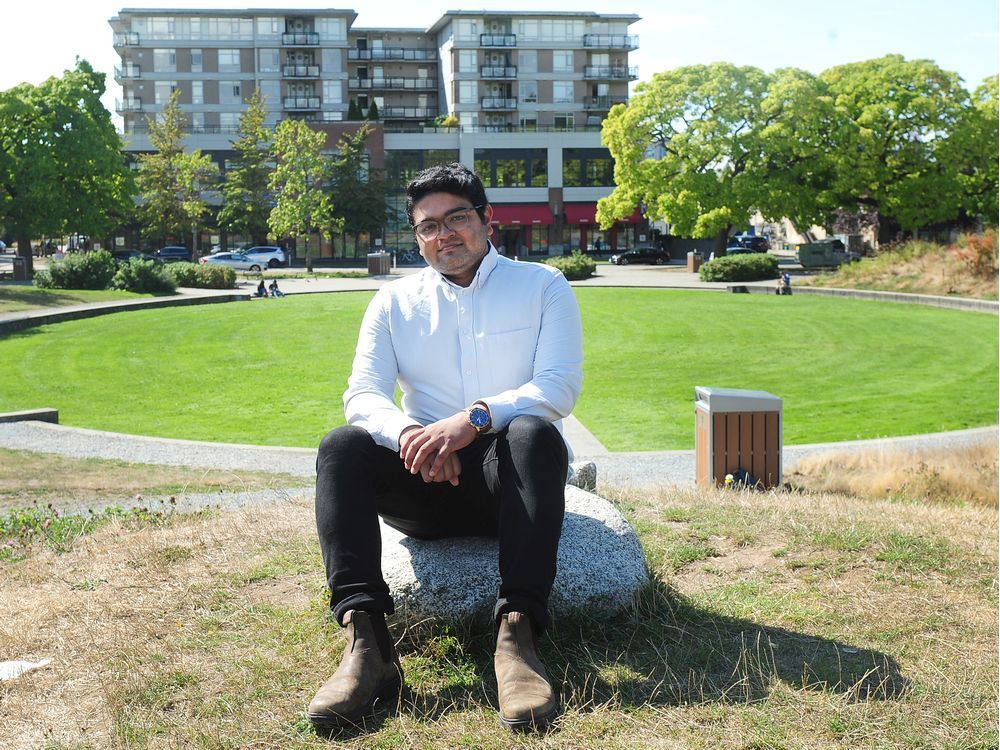Atheists, humanists want an end to prayers in B.C. legislature

Credit to Author: Matt Robinson| Date: Wed, 11 Sep 2019 00:41:50 +0000
An extensive analysis of prayers in the Legislative Assembly has found that the longstanding tradition tends to favour Christianity over other faiths and recommends the practice be abolished, replaced or reformed “to render (it) less discriminatory.”
Produced by the B.C. Humanist Association, a group that represents the interests of humanists, atheists, agnostics and non-religious people around the province, the analysis comes ahead of a planned examination of the prayers used to open sessions of the legislature and amid an ongoing revision of the sample prayers and reflections MLAs can rely on.
More than 50 volunteers signed up to transcribe the 873 prayers delivered by MLAs and guests at the start of every sitting of the legislature between Oct. 6, 2003 and Feb. 12, 2019, according to the association. Researchers then coded the prayers for their religiosity and structure, and made conclusions based on their content.
Ranil Prasad, a campaign manager for the association, said what they found was that prayers had been getting more sectarian, longer and increasingly Christian over time.
“We found this to be a bit weird, because the demographics of the province have been changing over time and we’re predominately becoming a less Christian, less-sectarian province,” he said.
Government house leader Mike Farnworth said MLAs have the option to say a prayer from their faith or spiritual belief, or to offer a secular or non-faith-based reflection at the beginning of a legislative sitting. Those prayers are not transcribed in the Hansard.
Of the hundreds of prayers the association looked at, nearly 92 per cent ended in “Amen,” according to the report. Of those that could be identified as religious, 93 per cent were considered Christian. About six per cent of all prayers included First Nation content, but that was mostly limited to the inclusion of a single Indigenous word. Every non-Christian religion, apart from Judaism, was under-represented in the prayers, according to the report, and there was “no apparent mention of Sikhism,” despite the province’s large Sikh population.
Legislature Speaker Darryl Plecas said the issue would be reviewed this fall.
“The prayers are as old as the parliament itself. It’s been a tradition. Whether or not that tradition should continue as it has in the past, is something that we need to examine, just as it’s been called to our attention to examine the whole business of dress code,” Plecas said.
The report found sectarian and Christian prayers were increasingly being delivered by both NDP and Liberal MLAs. More than 31 per cent of NDP prayers were secular compared to 26 per cent of Liberal prayers. But Liberal prayers were far more likely to be Christian than were NDP prayers (25 per cent compared to nine per cent).
Farnworth, an NDP MLA, said work on sample prayers was underway.
“While the legislative assembly has not discussed a proposal banning the traditional prayer option for MLAs, we are happy to hear that the clerk’s office is currently revising the set of sample prayers and reflections that MLAs can use as a guide, to better reflect the diversity of faith traditions in British Columbia,” he said in an email.
Jas Johal, a Liberal MLA who identifies as Sikh, said he welcomed the prayers, including those that are Christian.
“I never view them as coming from the Christian faith. I find them tremendously important in that they provide spiritual nourishment. But most importantly, for me, it reminds me why I’m there for every question period. That we are there for a greater good. For our constituents and for the people of British Columbia.”
Johal said that while he understands and respects the association’s point, he sees a bigger priority now.
“I’d rather be working toward electing more members of multicultural communities, ethnic communities, because they are still underrepresented in our legislature.”
The authors of the report surveyed legislative practices outside the province and found “considerable diversity” across the country. B.C. is one of only three jurisdictions where members can devise and deliver their own prayers, with the others being Nunavut and the Northwest Territories, according to the report.
New Brunswick and Prince Edward Island open with the Lord’s Prayer, and Nova Scotia opens with a shortened version of the same. Ontario also opens with the Lord’s Prayer, but it follows that up with a rotating schedule of prayers that reflect Indigenous, Buddhist, Muslim, Jewish, Baha’i and Sikh faiths, according to the report. Alberta opens with a prayer devised and delivered by the speaker, while Saskatchewan and Manitoba open with a non-denominational prayer, and the Yukon uses one of four standard prayers.
For Prasad, a key concern about the prayer practice regards the separation of church and state.
“We don’t think it’s appropriate for MLAs, in what’s supposed to be a secular institution, to be praying,” he said. “We pay them to pass bills and make speeches. We don’t pay them to write elaborate prayers.”